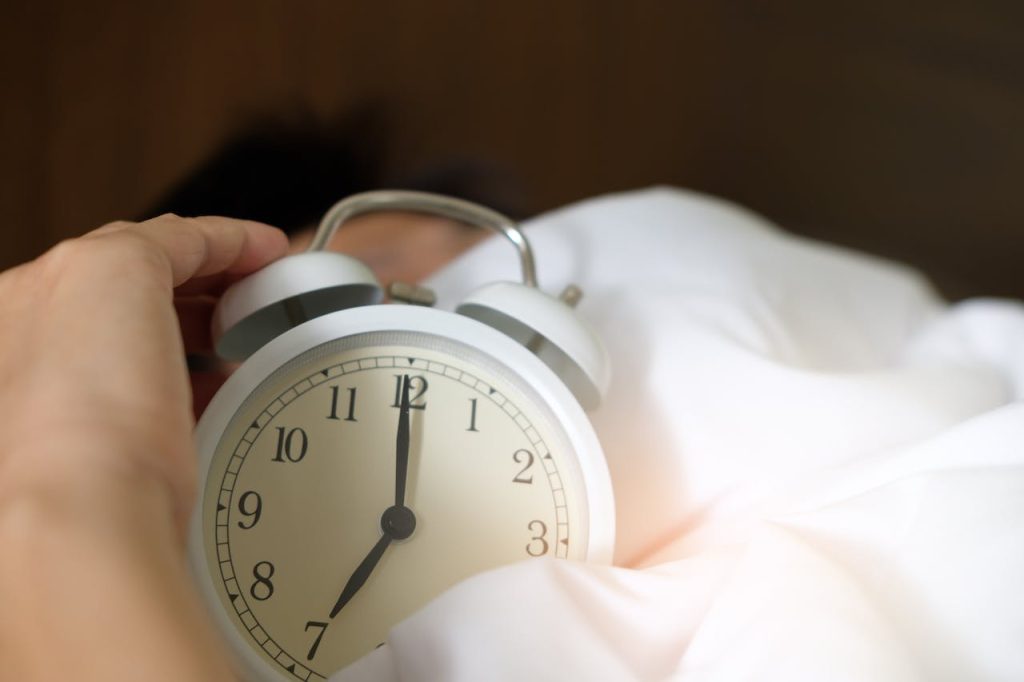Growth Hormone: The Importance of sleep in activating HGH
Sleep is often regarded as a period of rest and tranquility, a time when our bodies shut down and minds drift into the world of dreams. However, beneath the surface of this seemingly passive state lies a dynamic and essential aspect of our physiology. In this article we are gonna explore the importance of sleep in activating Growth Hormone. One of the most remarkable facets of sleep, is its role in activating the release of growth hormone (GH). This peptide hormone, produced by the pituitary gland, is a central player in orchestrating growth, tissue repair, and overall well-being. In this article, we delve deep into the science behind the significance of sleep in activating growth hormone and explore why it’s fundamental to health and development at all stages of life.

The Essence of Growth Hormone:
Growth hormone, scientifically known as somatotropin, holds a multifaceted position within the human body. During the formative years of childhood and adolescence, it serves as a chief driver of growth, guiding the development of bones, muscles, and organs. Throughout an individual’s lifespan, it continues to play a pivotal role by overseeing various metabolic processes, including the regulation of body composition and the maintenance of healthy tissues. These dual roles underscore the hormone’s importance, making it one of the key players in the intricate network of human physiology.
The Sleep Stages and GH Release:
The release of growth hormone doesn’t occur uniformly but instead takes place in pulsatile bursts. The majority of GH secretion occurs during the sleep cycle, with a particular emphasis on deep, slow-wave sleep, usually experienced during the first half of the night. This is when the body undergoes its most regenerative and restorative sleep phase, setting the stage for the release of this crucial hormone.
Factors Influencing GH Release:
Several factors can modulate the release of growth hormone, many of which align with the characteristics of deep sleep:
– Circadian Rhythm: GH secretion adheres to a circadian rhythm, peaking during sleep. Disrupting your sleep-wake cycle or experiencing erratic sleep patterns can disrupt the natural release of GH.
– Stress and Physical Activity: Stress and intense physical activity, including strenuous workouts, can temporarily elevate GH levels. However, for sustained and substantial GH release, it hinges upon the deep, reparative sleep that follows these stressors.
– Diet and Nutrition:Nutrient intake, specifically amino acids like arginine and ornithine, can influence growth hormone release. These nutrients are metabolically processed more efficiently during sleep when they are readily available in the bloodstream.
Consequences of Sleep Deprivation:
Inadequate or disrupted sleep takes a significant toll on the body’s ability to activate growth hormone. Chronic sleep deprivation leads to a consistent reduction in GH levels, impeding not only growth but also the body’s capacity for tissue repair, muscle recovery, and overall well-being. It’s a sobering reminder that sleep is more than just a luxury; it’s a biological necessity.
Practical Significance:
Understanding the pivotal role of sleep in activating growth hormone has profound practical implications:
– Optimal Growth: For children and adolescents, obtaining a sufficient quantity of high-quality sleep is imperative for realizing their growth potential. Prioritizing their sleep can lay the foundation for a healthier future.
– Tissue Repair and Muscle Recovery: In adults, deep sleep serves as the linchpin for tissue repair, muscle recovery, and the preservation of overall health. For those seeking to enhance their physical well-being, it’s a critical component of their regimen.
– Aging and Hormone Decline: As individuals age, natural GH production wanes. Nevertheless, fostering sound sleep habits can serve as a mitigating factor against some of the hormonal effects associated with aging, helping to maintain vitality and well-being.
– Performance Enhancement: Athletes and fitness enthusiasts seeking muscle recovery and growth can experience tangible benefits by elevating the priority of sleep in their regimen. It’s an often-overlooked aspect of training that can make a substantial difference in their progress.
Conclusion:
In conclusion, sleep is far more than a period of subjective rest; it is a dynamic phase when the body activates pivotal processes, including the release of growth hormone. Elevating its prominence within your daily routine—by adopting a consistent sleep schedule, creating a sleep-conducive environment, and striving for 7-9 hours of undisturbed, high-quality sleep each night—can serve as the catalyst for optimizing the activation of growth hormone. By doing so, you harness the potential for superior growth, recovery, and overall health.
The next time you’re enticed to trade sleep for other pursuits, remember the indispensable role it plays in nurturing your body’s growth and well-being. Prioritizing your sleep is not a luxury, but a fundamental investment in your health and future.








